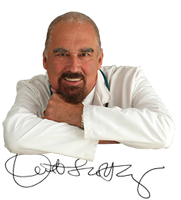For years I’ve been pointing out that taking an afternoon siesta has good science! It improves mental (cognitive) function, slows aging and extends memory. There are a whole raft of physiological benefits.
I lived for years in southern Spain in the late 1990s (Marbella) and can attest to the benefits first hand, though I speculate that some of that may have to do with sleeping off the alcohol imbibition from the night before! Drinking substantially is almost universal in the stifling hot climate of the Mediterranean, a factor usually totally ignored by ignorant dietetics “researchers”.
Maybe this is the REAL secret of the Mediterranean diet?

As I reported in an earlier newsletter, a 2007 study of 23,000 cases from Greece showed that taking a nap in the afternoon considerably reduced the risk of heart attacks (37% fewer). Unfortunately, this did not seem to apply to women but they had fewer heart attacks anyway, in this particular study.
Taking a nap after lunch, the so-called siesta, is a widespread indulgence in hotter climes. Business is resumed when the sun has lost some of its power and continues through the coolness of the evening.
Researchers found that napping every day produced better results than doing it occasionally (only a 12% reduction). This is an important study because the notably lower incidence of coronary artery disease has always been attributed to diet – the so-called “Mediterranean Diet”. It may be that researchers have been looking in the wrong direction. Maybe it’s the siesta habit instead!
The Greek study covered 5 years from 1994 to 1999 and was conducted in 10 European countries. The participants were categorized as:
- never taking naps
- those taking midday naps occasionally and
- those napping often or daily.
Naps were categorized as more than 30 minutes or less than 30 minutes. Taking daily naps of 30 minutes or more definitely helped health and survival.
Of course the researchers compensated for other factors which might cloud the issue, such as physical activity, body mass index, smoking status, and diet.
What this seems to be telling us is that short naps are great for reducing stress on a daily basis and we all know the dangers of stress. There is considerable evidence that it causes short and long term damage to health, including provoking heart disease and cancer.
Stress also destroys relationships and reduces productivity. Benjamin Franklin had a sleep-pattern characterized by periodic napping and he was very productive!1
“Only mad dogs and Englishmen go out in the midday sun”. It’s actually a slight misquote from a line in a song by Noël Coward, which he got from an earlier piece by that most Indian of all English writers, Rudyard Kipling. Kipling once described the delirium produced by the sun in India, observing that only “mad dogs and Englishmen go out in the noonday sun”. Coward used Kipling’s line in the tune, without the word “only”.

Noel Coward in his later years. Coward smoked (and drank) for England!
Scientific support for the benefits of a siesta time have continued over the years.
Afternoon Napping Linked To Better Mental Agility
Now a 2020 study weighs in, with data suggesting that taking a regular afternoon nap may be linked to better mental agility. The study, looking at over 2,000 an older Chinese demographic was published in the online journal General Psychiatry.
Siesta (napping) seems to be associated with better locational awareness, verbal fluency, and working memory.
Longer life expectancy and the associated neurodegenerative changes that accompany it, raise the prospect of dementia, with around 1 in 10 people over the age of 65 affected in the developed world.
As people age, their sleep patterns change, with afternoon naps becoming more frequent. But research published to date hasn’t reached any consensus on whether afternoon naps might help to stave off cognitive decline and dementia in older people or whether they might be a symptom of dementia.
To investigate this further, researchers took 2214 ostensibly healthy individuals aged at least 60 and resident in several large cities around China, including Beijing, Shanghai, and Xian.
In all, 1534 took a regular afternoon nap, while 680 didn’t. All participants underwent a series of health checks and cognitive assessments, including the Mini Mental State Exam (MMSE), which checks for dementia.
The average length of night time sleep was around 6.5 hours in both groups.
For this paper, afternoon naps were defined as periods of at least five consecutive minutes of sleep, but no more than 2 hours, and taken after lunch—classic siesta time! Participants were asked how often they napped during the week; this ranged from once a week to every day.
The dementia screening tests included 30 items that measured several aspects of cognitive ability, and higher function, including visuo-spatial skills, working memory, attention span, problem solving, locational awareness and verbal fluency.
Interestingly, the MMSE cognitive performance scores were significantly higher among the nappers than they were among those who didn’t nap. And there were significant differences in locational awareness, verbal fluency, and memory.
Of course studies like this don’t prove cause and effect. Taking afternoon naps may not be the reason that some individuals scored better. It may simple be that individuals in good shape regularly felt the need for some “catch up” shuteye. But it still means there is something going on: what is it about those individuals that leads them to nap regularly, perhaps intuitively?
The nappers have something going for them!
One theory is that inflammation is a mediator between mid-day naps and poor health outcomes; inflammatory chemicals have an important role in sleep disorders, note the researchers.
Sleep regulates the body’s immune response and napping is thought to be an evolved response to inflammation; people with higher levels of inflammation also nap more often, explain the researchers.
It comes down to what I have been saying for decades: sleep is the most powerful and healthful restorative there is. Your body cannot rest and regenerate, if you don’t give it chance!
Sleep Better
Melatonin is a bit corny as a sleep remedy. It doesn’t really PUT you to sleep, though it may help you STAY asleep.
Better is to take a formula, as follows:
- 3 mgs melatonin
- 5,000 IU of vitamin D
- 50 – 100 mg of 5-hydroxytryptophan (5HT)
You could also consider 500 – 1,000 mg of GABA (gamma-aminobutyric acid), a nerve relaxant.
Best of all, invest in a Kasina device. It’s brain entrainment at its best. It has 4 modalities which will put you to sleep, restfully and composed, by reducing your brainwave frequency. There are binaural beats, flickering lights (so-called photic driving), relaxing peaceful music, and my voice, droning on gently, taking you on inspiring “mental walks”—all together on the same restful track!
There are voice-free tracks too. Click here to find out more here.
Off to the Land Of Nod, as my father used to say. Also “up the wooden hill”, meaning upstairs to bed!
To your good health,

Prof. Keith Scott-Mumby
References:
1. Arch Intern Med. 2007;167:296-301.
2. Relationship between afternoon napping and cognitive function in the ageing Chinese population, General Psychiatry, DOI: 10.1136/gpsych-2020-100361.
